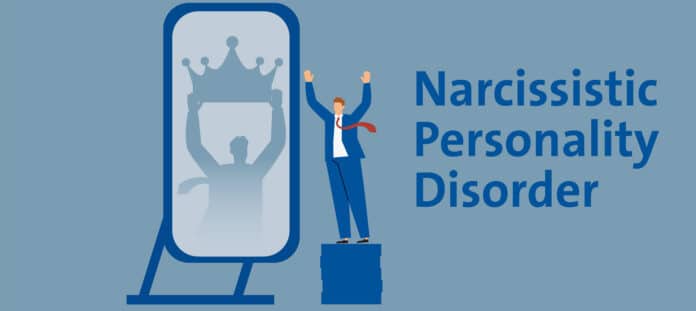Ever met any of those people who for some reason believe they are better than everyone else? They walk around with an inflated sense of pride, repeating words that are not their own and calling themselves ‘king’ or ‘boss’.
There’s something admirable yet irritatingly unsettling about their aura. They take pride in making other people feel less than themselves and believe everyone should drink from their well of wisdom.
These people are called narcissists.
What is Narcissism?
The Roman poem Ovid’s Metamorphoses, published in the year 8 AD, is where the word “narcissism” first appeared.
The poem’s third book recounts the fabled tale of Narcissus, a gorgeous young man who rejects the advances of numerous possible partners. The gods then punished Narcissus by making him fall in love with his own reflection in a body of water after he rejects the nymph Echo, who was doomed to only repeat the noises that others made.

When Narcissus realizes that the person he was in love with was unable to reciprocate his love, he progressively withered away.
Being too preoccupied with oneself and one’s demands, frequently at the detriment of others, is a trait of the self-centered personality style known as narcissism. It has a spectrum, ranging from normal to unhealthy personality expression.
There are normal, healthy amounts of narcissism in people, but there are also more severe levels, which are often present in the self-absorbed or those who suffer from a pathological mental disease like a narcissistic personality disorder.
Along with Machiavellianism and subclinical psychopathy, it is one of the characteristics that make up the dark triad.
Narcissistic Personality Disorder
Narcissistic personality disorder is a mental health condition in which people have an unreasonably high sense of their own importance. They demand excessive amounts of attention and want to be admired.
It’s possible for those who have this disease to be incapable of comprehending or caring about the sentiments of others.
However, beneath their outward display of excessive confidence, they actually lack confidence in their own abilities and are severely hurt by the least criticism.
Causes of Narcissistic Personality Disorder
NPD has no known cause in particular. However, it is defined by the biopsychosocial model, which combines biological, psychological, and socio-environmental risk factors.
Genetics, neurobiology, trauma, abuse, and parenting are some examples; however, they are not all included. The ones included are:
- Childhood trauma (such as physical, s3xual, and verbal abuse)
- Early relationships with parents, friends, and relatives
- Genetics (family history)
- Hypersensitivity to textures, noise, or light in childhood
- Personality and temperament
See here: Perfectionism: What It Is, How to Cope With It
Characteristics of Narcissists
Professionals have diagnosed that narcissists have at least five of these character traits:
- An overinflated sense of self-importance
- Constant thoughts about being more successful, powerful, smart, loved, or attractive than others
- Feelings of superiority and desire to only associate with high-status people
- Need for excessive admiration
- Sense of entitlement
- Willingness to take advantage of others to achieve goals
- Lack of understanding and consideration for other people’s feelings and needs
- Arrogant or snobby behaviors and attitudes
Different expressions of narcissism
s3xual narcissism
The term “s3xual narcissism” refers to an egocentric pattern of s3xual conduct that includes an exaggerated perception of one’s own s3xual prowess or entitlement, occasionally seen in extramarital relationships.
This may be an attempt to compensate excessively for low self-esteem or a failure to maintain actual intimacy.
SEE: Easy Ways To Build Confidence
Celebrity narcissism
Celebrity narcissism is a type of narcissism that emerges in late adolescence or early adulthood. It is fueled by wealth, fame, and other celebrity trappings (also known as acquired situational narcissism).
After childhood, celebrity narcissism develops and is encouraged by our culture’s obsession with famous people. Fans, assistants, and media outlets such as tabloids all contribute to the perception that the person is actually much more significant than other people.
This triggers a narcissistic problem that may have previously been latent or merely a predisposition and helps it develop into a full-blown personality disorder.
Parental narcissism
Children of narcissistic parents are frequently seen as extensions of their parents, and they are typically encouraged to behave in ways that satisfy their requirements for emotional support and self-worth.
However, these kids may suffer a great deal from this because of their susceptibility. They may give up their own desires and emotions to satisfy the requirements of their parents.
If a child grows up with this kind of parenting, they could find it difficult to maintain intimate connections. In severe cases, this parenting approach may lead to estranged connections with the kids, along with bitterness and, occasionally, self-destructive inclinations.
SEE: Breaking Down the Four Types of Parenting: What You Need to Know
How to deal with a narcissist
Most times, cutting off a person with narcissistic tendencies is the best way to disarm them. But some situations require you to stand your ground, so here are ways you can deal with a narcissist.
1. Establish boundaries: Set healthy boundaries between you and the person. Ster off some types of conversations especially if you know it will hurt you.
Let the person know what topics are off limits for them to discuss with you, and stick to your resolution.
2. Limit their access to you: Take yourself out of their equation. Keep details about yourself private. Do not give them the opportunity to pry into your life, that would reduce their ammunition when it comes to you.
3. Disengage from their conversations: It’s hard to beat a narcissist at their own game. They’ll come with points that seem to make sense. The best option for you is to disengage.
Now, this might sound like bowing out but it isn’t. One thing about narcissists, they are always itching for a clear win. You bowing out will leave them dissatisfied, thus you still win.
4. Hide your true intent from them: Narcissists like to be privy to information that is usually none of their business so they can use it against you later. Do yourself a favor and keep your intent from them.
Keep things to yourself and if you feel like playing games, just say misleading things to confuse them. Be careful though, they are usually smart and can smell fish from a mile off.
ALSO READ: 50 Empowering Know Your Worth Quotes To Boost Your Confidence
On a Final Note: Narcissism vs Narcissistic Personality Disorders
While traits of narcissism can be found in people with narcissistic personality disorders, not everyone who is a narcissist has a narcissistic personality disorder.
Only a trained mental health professional is qualified to make an official diagnosis yo decide if a person is just narcissistic or has developed Narcissistic Personality Disorder.





